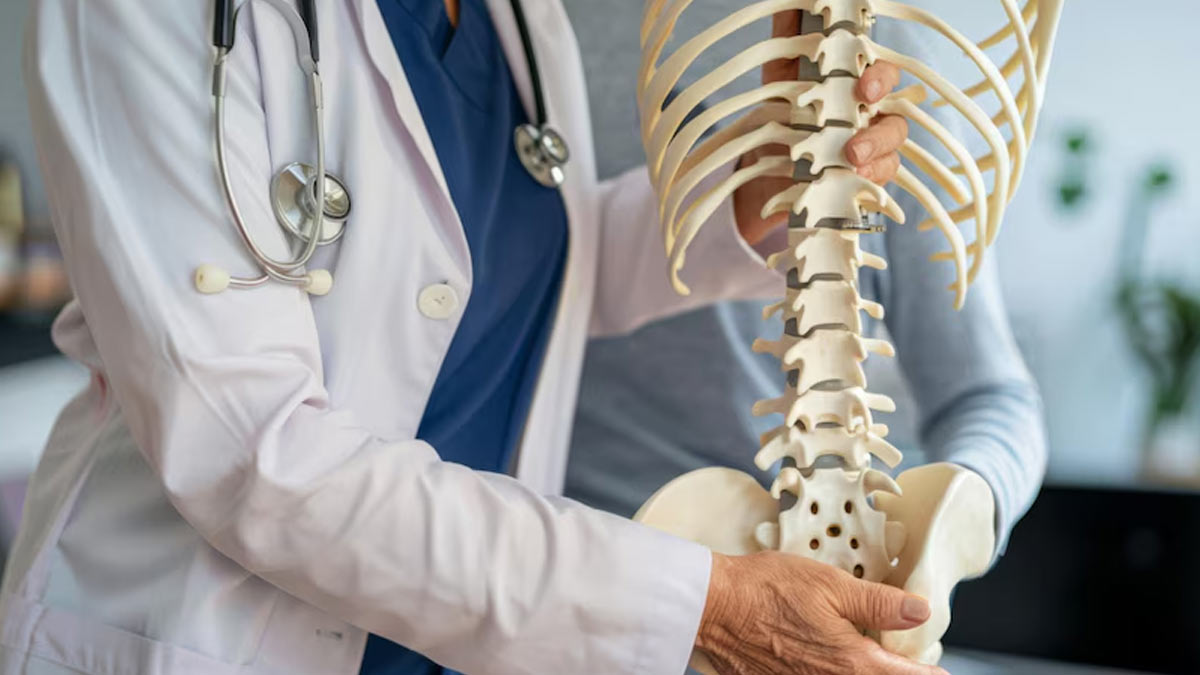
Bone health is often something we take for granted—until problems arise. Osteoporosis, a condition characterised by the weakening of bones, progresses silently and is frequently only detected after a fracture. This makes early detection crucial for effective intervention. Understanding the early signs and symptoms of declining bone health can help prevent severe complications.
Table of Content:-
To understand the early signs and symptoms of bone decline, OnlyMyHealth interacted with Dr Anayapu Deepak, Consultant, Orthopaedic Surgeon, Mamata Super Speciality Hospital, Andhra Pradesh.
Understanding Osteoporosis
Osteoporosis is often referred to as a "silent disease" because it typically advances without noticeable symptoms until a fracture occurs. This condition affects millions globally, with a higher prevalence among women, particularly after menopause. Dr Deepak explains, "Osteoporosis occurs early in women as compared to men, as women have reduced oestrogen levels after menopause. Hence, most women complain of joint pains, weakness of bones, back pain, and difficulty in doing daily household chores more commonly after 46 years of age, which is the average age of menopause in Indian women."
Early Symptoms of Bone Decline

Identifying the early signs of bone decline is crucial in managing and potentially reversing the effects of osteoporosis. Some of the key symptoms to be aware of include:
Bone pain: Persistent pain in specific areas, such as the shins or back, can be an early indicator of weakening bones. While occasional aches and pains might be dismissed as a natural part of ageing, persistent or recurring pain should be taken seriously.
Also read: Are Your Bones Healthy? Here's How Cellular Therapy Can Improve Bone Health
Early fatigue: Feeling unusually fatigued during activities that were previously easy, like climbing stairs, squatting, or walking long distances, might signal that your bones are not as strong as they once were. This fatigue can result from the body’s increased effort to compensate for weakened bones.
Brittle bones: Brittle bones are more prone to fractures, even from minor falls or bumps. Dr Deepak notes that "some people may not exhibit any symptoms until a fracture occurs, so it's essential to maintain a healthy lifestyle." This emphasises the importance of paying attention to subtle signs before a fracture happens.
Loss of height or stooped posture: A noticeable loss of height over time or developing a stooped posture could be a sign of spinal fractures or bone thinning. These changes in posture are often overlooked but are critical indicators of declining bone health.

Preventive Measures
While osteoporosis can be a daunting diagnosis, there are steps you can take to slow down bone decline and reduce the risk of fractures.
Regular exercise: Engaging in weight-bearing and resistance exercises strengthens bones and improves overall musculoskeletal health. Activities like walking, jogging, and weight lifting are particularly beneficial.
Balanced diet: A diet rich in calcium and vitamin D is essential for maintaining strong bones. Foods like dairy products, leafy greens, and fortified cereals can help meet your nutritional needs.
Avoid smoking and excessive alcohol: Both smoking and excessive alcohol consumption have been linked to decreased bone density. Reducing or eliminating these habits can significantly impact your bone health.
Manage underlying medical conditions: Conditions like diabetes or rheumatoid arthritis can accelerate bone loss. Managing these conditions with the help of a healthcare professional can mitigate their impact on your bones.
Also read: Dealing With Weak Bones? Here's How Flaxseed Powder Can Help You
The Importance of Early Detection
Dr Deepak emphasises, "If you experience any of these symptoms, consult a healthcare professional for an evaluation and potential bone density screening." Early detection and preventive measures are key to managing osteoporosis effectively. Bone density screening can provide a clear picture of your bone health, allowing for timely interventions.
Remember, maintaining a healthy lifestyle is not just about keeping your bones strong today—it’s about ensuring they remain resilient as you age. With the right approach, you can significantly reduce your risk of osteoporosis and its associated complications.
Also watch this video
Read Next
Star Trek Fame Patti Yasutake Succumbs To Rare Type Of T-Cell Lymphoma; Know All About The Diagnosis
How we keep this article up to date:
We work with experts and keep a close eye on the latest in health and wellness. Whenever there is a new research or helpful information, we update our articles with accurate and useful advice.
Current Version